Volunteer Spotlight: Family Guide Volunteers
Published by Feeding Matters on Feb 08, 2021
Family Guide Authors
Deniselynn Henderson
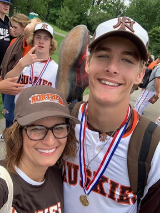 Tell us a little bit about yourself and what you do.
Tell us a little bit about yourself and what you do.
I am a mother of two, Trey (19) and Bailey (21). I love spending time with my kids, traveling, and practicing yoga. My two favorite places to hang out is at Lake Michigan beach (luckily only 25 minutes from my house), and outside with my three Nigerian Dwarf goats (Peppermint Patti, Peanut, and Lucy). I am gluten free so I spent a lot of time cooking and baking with local ingredients or with items from my garden.
I have been a pediatric occupational therapists for over 22 years. I have the best of both worlds as I teach at a university and work part time in a pediatric clinic. I have been able to incorporate my love of animals into my profession working with horses, dogs, and goats which has been rewarding to see the progress of children and families when they are around animals. I enjoy working with graduate students at the university, being part of their studies and seeing how they contribute to the occupational therapy profession.
What motivated you to become involved with Feeding Matters?
I was introduced to Feeding Matters from a colleague and I found an instant connection with their organization. As a mother, I did not have resources to help me manage my own son’s feedings issues 19 years ago even though I had recently graduated from occupational therapy school. Throughout my career, I devoted time finding resources for families so they would not feel the sense of loss I had. I was thrilled to find an organization that embodied the same passion to help families, share stories, while advocating for diagnostic changes in the health care world. I was motivated to be part of a community that could understand my journey as a parent.
How have you volunteered with Feeding Matters?
I have been part of the “Power of Two Family Coach” program since 2019 and had the opportunity to be a contributing author on the Feeding Matters Manual that was re-published in 2020.
What has been your favorite part of volunteering with Feeding Matters?
I love connecting with families and listening to their stories. You hear in their voices and see on their faces the appreciation for Feeding Matters. I enjoy learning from Heidi and other family coaches. Heidi is an amazing person that takes time to check in on you and your child, provides support and encouragement despite the many job responsibilities she carries. I love how positive and productive Feeding Matters is an organization for myself and families.
What sets Feeding Matters apart from other organizations?
Feeding Matters is an organization that listens to families and their stories. It recognizes the struggles and the need for family advocacy and necessary health care education. Feeding Matters values the contributions of parents and professionals and creates a platform for everyone to connect, learn, and support each other. Feeding Matters has developed an effective family coaching program across the world, making ground breaking impact on families and communities.
Kelsey Thompson
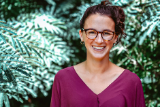 Tell us a little bit about yourself and what you do.
Tell us a little bit about yourself and what you do.
I am a speech language pathologist in private practice, and a PhD student at UNC Chapel Hill. In my role as a SLP I specialize in pediatric feeding disorders, but also see kids with a variety of other diagnoses. In my PhD program, I am interested in studying how children learn to eat solid foods and how we can use biobehavioral measure to study this transition in infants at high risk for long-term feeding disorders.
What motivated you to become involved with Feeding Matters?
After being exposed to Feeding Matters, I was compelled by its mission and commitment to integrating providers, families, and researchers, as both a clinician and researcher. Further, walking alongside families of children with PFD as a speech pathologist and seeing their hard work motivated me to give back!
How have you volunteered with Feeding Matters?
My major role thus far has been as a co-author of the Family Guide. I have also helped creating some of the graphics you see on social media and for reports!
What has been your favorite part of volunteering with Feeding Matters?
My favorite part of volunteering with Feeding Matters has been the people! It has been a joy to work with people from a variety of different backgrounds – researchers, parents, therapists – to advance this important work.
What sets Feeding Matters apart from other organizations?
Feeding Matters is unique in that it truly integrates all of the stakeholders involved in pediatric feeding disorders, including families, clinicians, and researchers. This is critical for advancing advocacy, education, support, and research.
Family Guide Authors
Tessa Gonzalez
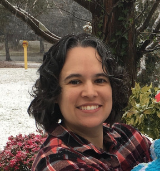 Tell us a little bit about yourself and what you do.
Tell us a little bit about yourself and what you do.
I’m mom to two little ones including a 4 and a half year old with pediatric feeding disorder who has a CASK gene mutation.
What motivated you to become involved with Feeding Matters?
I’ve seen first-hand how helpful it can be to have personalized support from other people who know what it’s like to be in your shoes. I wanted to be able to use my experiences to help other families.
How have you volunteered with Feeding Matters?
I have mentored a couple of families through the Power of Two program and provided feedback for the family guide which I loved being able to be a part of.
What has been your favorite part of volunteering with Feeding Matters?
I love talking with other families and brainstorming ways to help them best advocate for their kids. It’s really easy to doubt yourself when dealing with a poorly understood condition like PFD. Sometimes all you need is for someone else to remind you that you know your child best and that it’s ok to be an advocate.
What sets Feeding Matters apart from other organizations?
The huge variety of efforts that Feeding Matters has taken on. I think Feeding Matters has seen and addressed so many needs which is unusual compared to other organizations I’ve seen.
Ronald Serbin
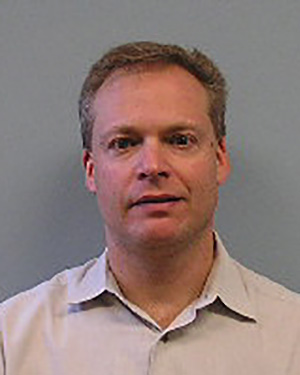 Tell us a little bit about yourself and what you do.
Tell us a little bit about yourself and what you do.
I am a general pediatrician in Phoenix, with an interest in caring for children with special needs, complex medical problems, and pediatric feeding disorders.
What motivated you to become involved with Feeding Matters?
I met two of the founders Chris Linn and Shannon Goldwater at their booth during a pediatric conference around the beginning of Feeding Matters, when it is was called P.O.P.S.I.C.L.E. I recognize the number of children that I had seen with feeding difficulties and the lack of training I had in treating children with feeding disorders during my training. I felt that I could give their organization my perspective as a pediatrician who cares for children with feeding difficulties.
How have you volunteered with Feeding Matters?
I began on their Medical Advisory Council, participated in multiple Feeding Matters Conferences consortiums, including speaking at the conference and the annual fundraising lunch, participated at the start of the development of the Infant and Child Feeding Questionnaire and development of the Pediatric Feeding Disorder as an entity.
What has been your favorite part of volunteering with Feeding Matters?
To be able to contribute, albeit a small part, in the growth, influence, and importance of Feeding Matters in their development as a small local organization to an international organization which helps children and families all over the world in their mission to overcome a Pediatric Feeding Disorder.
What sets Feeding Matters apart from other organizations?
Feeding Matters has a mission to advocate for children, their families and providers in all disciplines with a pediatric feeding disorder. Feeding Matters accomplishes these goals by coordinating resources from the expertise in disciplines from all over the world to develop awareness, education, public policy, research, earlier and improved identification, and improving outcomes of children with pediatric feeding disorders. These objectives have been accomplished and new ideas are developed because of the vision and perseverance of the Feeding Matters leadership, staff, and support from their partners around the world.
Family Guide Editor
Loran Edwards
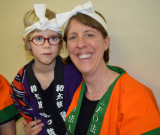 Tell us a little bit about yourself and what you do.
Tell us a little bit about yourself and what you do.
I am an occupational therapy student at the University of Puget Sound in Washington state and I am the mother of a 10 year old with a PFD.
What motivated you to become involved with Feeding Matters?
When my daughter was born premature and needed a feeding tube to eat, I felt very alone and scared. Through the internet, I found other families who knew what I was going through and helped me through the darkest times. A few years later, I found Feeding Matters and knew it was time for me to give back and start helping others as I had been helped.
How have you volunteered with Feeding Matters?
I have been a family coach for about 6 years. I have also worked on several editing projects for Feeding Matters, the latest one being the Family Guide. I am so excited about it and thing it is a great resource for families!
What has been your favorite part of volunteering with Feeding Matters?
I have loved connecting with other families and learning from them. It is a wonderful community helping each other to navigate the confusing, often scary, world of PFD.
What sets Feeding Matters apart from other organizations?
I don’t know that other organizations don’t do this, because I am not involved in other organizations, but everyone at Feeding Matters is very easy to reach out to and talk to and they really care about the families they are serving. And EVERYONE understands the challenges that come with PFD! It is wonderful to talk to people without first having to explain what you are experiencing.